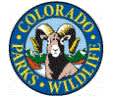Antler Collectors Advised to Avoid Stressing Wildlife in Colorado
OutdoorHub 03.13.13

As antler collectors travel the backcountry in search of fresh sheds this coming spring, Colorado Parks and Wildlife reminds them to avoid stressing wildlife still struggling to survive the cold weather and the lack of forage.
Many collectors use freshly shed antlers to create artwork, furniture and other goods. Although most are responsible, state wildlife officers occasionally receive reports of people on motorized vehicles chasing elk or deer herds in hopes of collecting a fresh pair of antlers dropped by a startled animal.
Colorado Parks and Wildlife reminds the public that harassing wildlife is unethical and illegal and can result in significant fines for violators.
“We caution everyone to be respectful of animals still dealing with tough conditions,” said Lyle Sidener, area wildlife manager in Hot Sulphur Springs. “Loud noise, fast moving vehicles and other disruptive human activity is a serious concern because it can stress animals that are trying to conserve energy, leading to higher mortality, especially in fawns and calves.”
In some cases, the spooked animals will seek shelter on private land increasing the likelihood of game damage conflicts, or they may run across highways and railroad tracks leading to injuries or death from collisions.
“Hunting for shed antlers is a great way to get some fresh air and enjoy the outdoors,” continued Sidener. “But remember to keep your distance from wildlife and respect closed areas.”
Some areas of Colorado close to all human activity during winter and into early spring to protect wildlife, including big game that migrates to lower elevations. In the Gunnison Basin, regulations prohibit antler collecting in game management units 54, 55, 551, 66 and 67, from Jan. 1 through March 14. From March 15 through May 15, shed antler collecting is prohibited from legal sunset until 10 a.m. Violators can be fined by Colorado Parks and Wildlife officers for entering and collecting in closed areas.
Public land management agencies recommend that checking the latest rules and regulations regarding the use of motorized vehicles may prevent costly fines issued by their officers, and local sheriff departments and local law enforcement agencies advise honoring all “No Trespassing” signs to avoid breaking the law.
The growth of antlers is one of nature’s most interesting and unique phenomenons. Soon after temperatures warm up in late spring, male deer, elk and moose begin growing a new pair of antlers. During the fall mating season, the bulls and bucks will display their fully-grown racks in an effort to attract females, or use them to joust with other males as they compete for a mate.
After mating season ends and snow and low temperatures move in, the animals focus almost exclusively on finding food and surviving. By the end of winter, when forage becomes especially scarce and the animals rely almost entirely on their fat stores, the bulls and bucks will shed the extra weight of their antlers to conserve energy as they await the spring green-up. Soon after the weather warms, the growth of antlers begins anew.
Some suggestions wildlife managers offer to avoid stressing animals during this time, is too keep your distance and consider searching for shed antlers on foot or horseback instead of a motorized vehicle.
“You can miss much while riding on a fast moving ATV,” said Bill de Vergie, area wildlife manager from Meeker. “A slow approach can result in better luck finding antlers, and it will certainly be easier on wildlife.”
Many shed antler collectors bring their dogs along, some of which are trained specifically for this purpose. Wildlife managers advise pet owners to keep their dogs under control at all times because in the presence of wildlife, even the most domesticated pets can quickly revert to their primitive instincts and may severely injure deer, elk or other animals. The public is reminded that in Colorado, any law enforcement officer is authorized to take immediate action to stop dogs from attacking wildlife.
Northwest Regional Manager Ron Velarde encourages the public to be ethical when encountering wildlife, and asks the public to do their part to protect one of the state’s most valuable natural resources.

